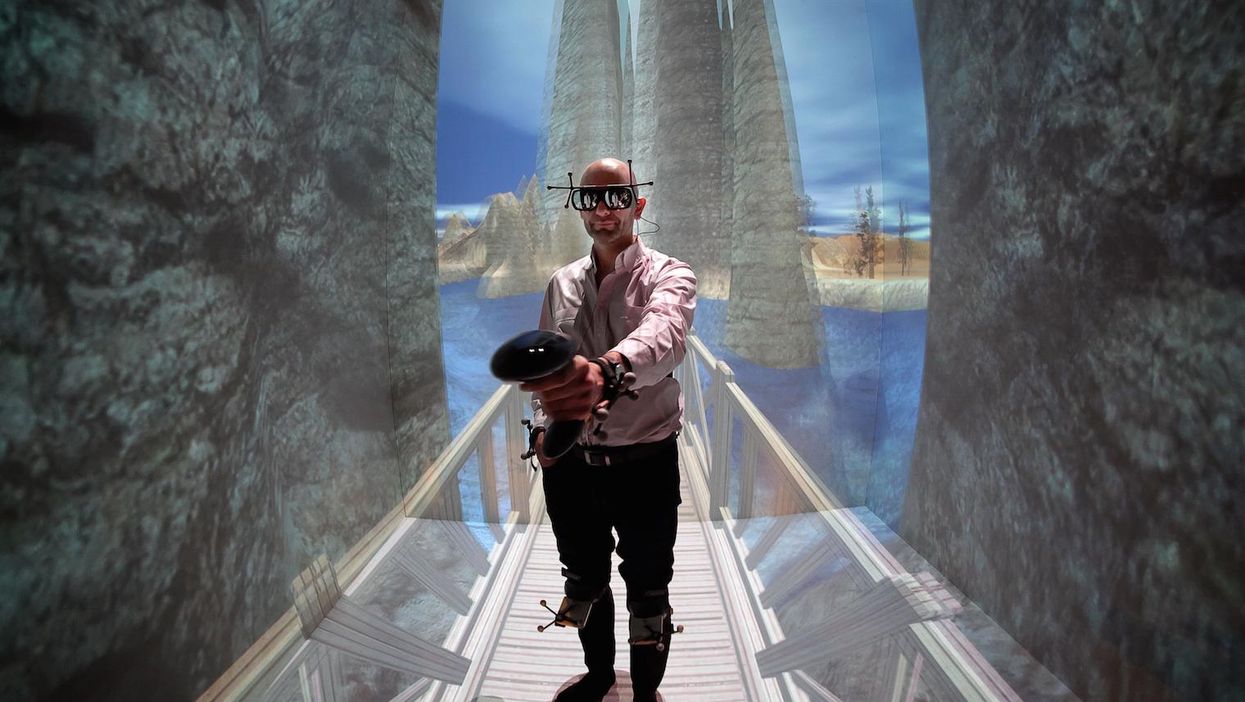Science & Tech
test test test test
Feb 15, 2016

French patient Denis Duet wearing a virtual reality headset undergoes a VR therapy session
Virtual reality therapy could help people with depression to be less critical and more compassionate towards themselves, a study has found.
More than half of the patients using the immersive therapy reported improvements in their mental health, with several experiencing a marked drop in the severity of their condition.
In the study patients were given a headset and asked to express compassion towards an upset child, reassuring the virtual youngster until it stopped crying.
After a few minutes the patients took the place of the virtual child and saw the adult deliver their own compassionate words and gestures back to them.
Researchers at UCL and ICREA-University of Barcelona tested the therapy in 15 patients with depression aged 23-61. Nine reported reduced depressive symptoms a month after the therapy, of whom four experienced a clinically significant drop in depression.
The findings have "huge potential" to revolutionise the treatment of depression, said study co-author Professor Mel Slater.
Additionally, study lead Professor Chris Brewin said:
By comforting the child and then hearing their own words back, patients are indirectly giving themselves compassion.
Top 100
The Conversation (0)













